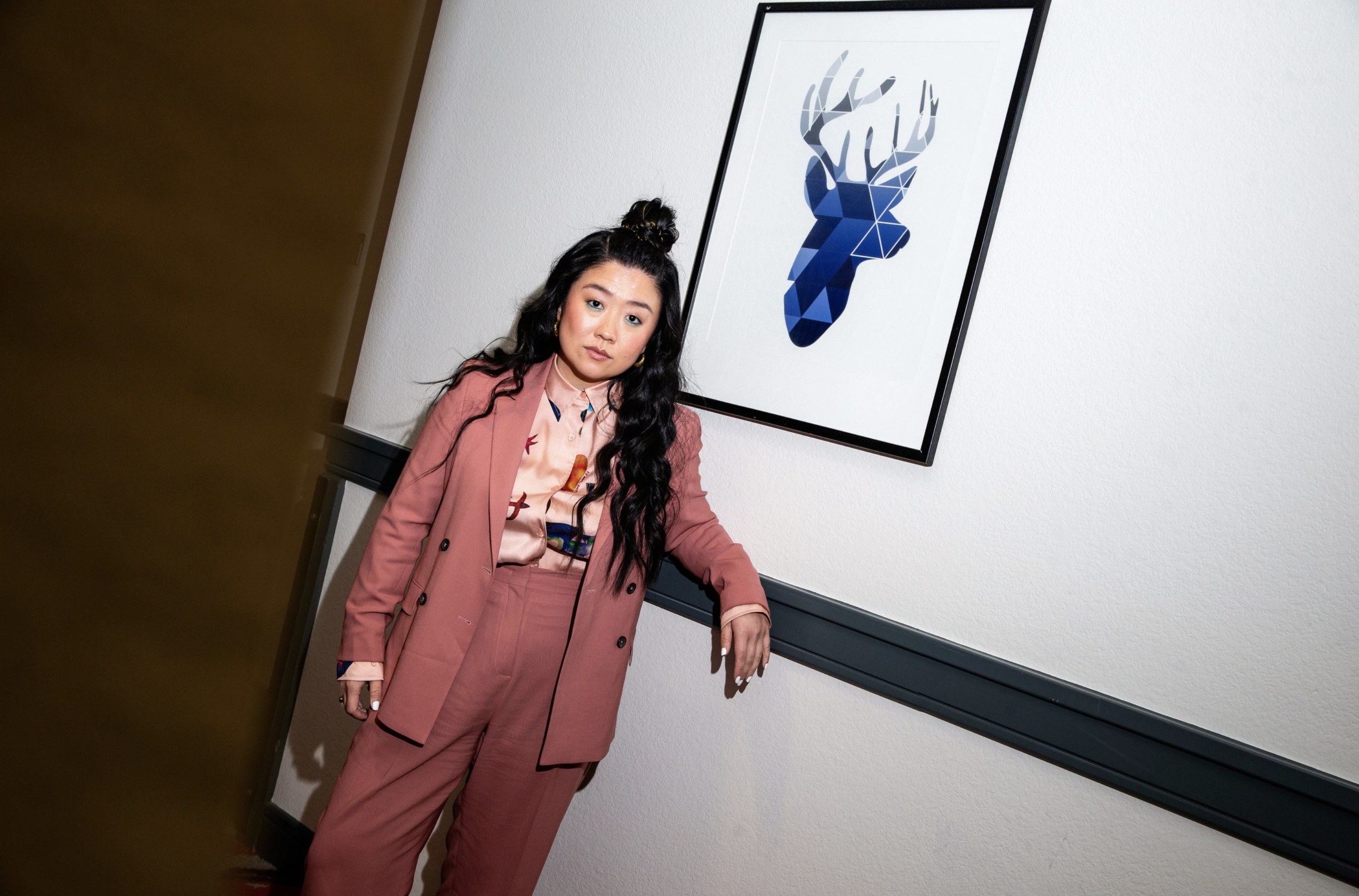shortcomings
The apt title of Randall Park’s debut directorial effort, Shortcomings, says it all. Scripted by Adrian Tomine, based on his graphic novel of the same name, this film positions itself as a witty, incisive look at the Asian-American experience and representation, while simultaneously being aware of its own contributions. It wants to have its cake and eat it too—to poke fun at how Asian Americans are portrayed on screen while also throwing its own hat into the ring. It largely succeeds at this, but is let down by its central character, a gratingly monotonous narcissist who recalls Woody Allen in his heyday.
Ben (Justin H. Min) is an aspiring filmmaker, albeit one who spends all his time watching indie films on DVD and working shifts at the local movie theater. He and his girlfriend Miko (Ally Maki), who works for an Asian American film festival, live in Berkeley, where their relationship is becoming increasingly fraught. In a hilarious opening, they attend a screening of a new movie that’s clearly a thinly veiled take on Crazy Rich Asians (featuring a cameo from the always reliable Ronny Chieng). Rather than be happy and appreciate that this new movie is representing their culture on screen, all Ben can do is criticize the movie’s excessive commercialism. In other words, Ben is an intellectual, pretentious snob. Miko eventually moves to New York to pursue an internship, leaving Ben behind to bum around with his friend Alice (Sherry Cola) and to chase after other women. And then…not much else happens.
Normally I take notes on a film throughout the runtime. With this one, noticeably, I stopped paying much attention after about 40 minutes. I kept watching, sure, but ran out of new things to write down. This is because the movie settles into a nauseatingly repetitious, tedious rhythm. See, Ben is not an endearing character to spend time with. Min mugs and quips his way through scenes, but is unable to rise above the script. And so the audience is forced to bear witness as this narcissist tears through relationships like a wrecking ball, insulting and looking down on everyone else. The first time it happens, it’s disquieting. Eventually it happens so many times that you’ll wonder whether you’re rewatching an old copy of Manhattan or Hannah and her Sisters. To this film’s credit, other characters do call him out on his behavior, but each time this happens, both Ben and the movie itself breeze past it, on to the next scene. It eventually becomes clear that we’re supposed to like this character. Even though he eventually suffers some personal setbacks, don’t expect to see any genuine contrition or self-reflection from this character by the time the movie’s over.
There are other missteps as well, which seem more than a little misogynistic. When Miko moves away, Park doesn’t quite explore what it means for her and Ben’s relationship. It comes off as lazy writing more than anything else. Are they still together? Are they on a break? Combine this with a third act revelation about Miko’s character that makes her appear duplicitous, and it becomes clear that Miko is meant to bear the brunt of the blame for their miscommunication. On top of that, the specifics of her deception are also unnecessarily sexist. Ben eventually finds out that she moved to New York not to pursue an internship, but to, among other things, model lingerie. Up to this point, Miko has been represented as a self-sufficient, girlboss, intelligent character, and the need to make her a sex object feels misplaced. (Not to mention the ditzy, skimpy clothing we see her wearing later in the film.)
Since this is based on a graphic novel, it’s entirely possible that this is all lifted straight from the source material. However, in adapting any pre-existing material, it’s up to the filmmaker to decide how best to translate it to a new medium. And so it feels like an unavoidable truth that Ben is, at least in part, a stand-in for Park. This is unfortunate, as there is a glaring disconnect between Ben’s character and the rest of the movie, which is genuinely funny at times. To be fair, some of the jokes are lazy—at one point, Ben visits his coworker’s apartment, only to find her roommate likes to walk around naked. We know this is supposed to be funny because the camera matches Ben’s stare, lingering on the roommate’s butt as he looks through their fridge for a snack. The human body—how hilarious! But facile jokes aside, there are some hilarious moments in here, particularly the skewering of the Crazy Rich Asians model of on-screen representation, and pretty much any scene that Alice is in. (Sherry Cola makes you long for a different movie in which Alice is the main character.) The pop culture banter threaded throughout the film is also consistently amusing, particularly a laugh-out-loud exchange between Ben’s coworkers Lamont (Scott Seiss) and Gene (Jacob Batalon) about the internet theory that Snowpiercer is a sequel to Charlie and The Chocolate Factory. Both Debby Ryan (Sasha) and Tavi Gevinson (Autumn) also hold their own, but their screentime is too limited to leave an impact—their main reason for existing seems to be to show us that Ben is an asshole (no, really?). Even a late appearance by Timothy Simons, amusingly cast against type as a suave clothing influencer, isn’t enough to ultimately save this film either.
What makes this movie so disappointing is that Randall Park has otherwise been a consistently reliable, funny performer, from his work on Fresh Off The Boat to even his Marvel appearances (his improv’d exchange with Paul Rudd in Ant Man and the Wasp remains a franchise highlight). While this is a competently made film, the stance it takes toward its main character and the women in his life is problematic enough that fans of his should be very concerned for his next project.


